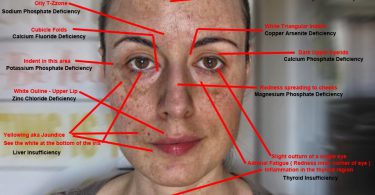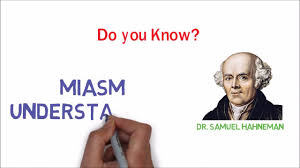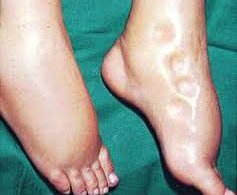Psychotherapy aims to increase the individual’s sense of his/her own well-being. Psychotherapists such as homeopaths employ a range of techniques based on experiential relationship building, dialogue and communication that are designed to improve the mental health of a patient.
What is homeopathy? Homeopathy is an individualising form of treatment; it addresses the causes of disturbances in health. Homeopathy is unique in its capacity to treat the mind and emotions. It is a profoundly holistic form of treatment where every aspect of the patient’s life, experience and every symptom is relevant and utilised in choosing the ‘most similar’ medicine (the similimum), it practice enacts respect for both the patient and the medicine through its method of case-taking and in the specificity and gentleness of its prescriptions.
How is Homeopathy Different from Psychotherapy?
- Homeopathy has its own philosophy and a vast and growing literature over its 200 years of worldwide practice.
- Homeopathy has its own pharmacopeia – drawn from plants, minerals & animal substances
- Homeopathic medicines are prepared in a unique way – they are highly diluted & ‘succussed’ or shaken – a process which eliminates toxicity & enhances the healing potential of the medicine.
Psychology of Anger
Glen Gibson, a counselor and psychotherapist in the U.K. states that “Anger itself is not a problem – it is a normal human emotion, and can be channeled usefully into appropriate action. Anger is one of our basic instinct to keep us free, and to preserve our self. Not all anger is unhealthy, it helps us to stand up for ourselves, so we are not a pushover and fall on the ground, yet getting angry often prevents problems being solved. Our anger can be our instinctive action for our freedom & preservation. Anger can be a last resort defence against allowing others to dominate or manipulate us, so we stand up for who we are. Repressed anger may also not be healthy. Anger can also motivate us to take action against injustice. How to express it in healthy ways may be a challenge for us.”
Aristotle once said that “Anyone can become angry. That is easy. But to be angry with the right person, to the right degree, at the right time for the right purpose and in the right way – that is not easy.”
Some of us may struggle to express our anger without initiating our anxiety, and with our tension, we can become wound up like a spring, which needs a release. Anger is a primary emotion, which prepares us for fight-or-flight; what all male and female animals do when they are in danger or in fear, as chemicals are released into the blood stream. When angry, men & women see things one-dimensionally. The psychotherapy with homeopathy addresses not only how to manage and control anger, but also how to express anger in controlled & healthy ways. Safely breaking out of anger, curbing and taking time to cool off can support us. Struggling to pause or reflect, we may even catch our self by surprise, e.g. in road rage.
Ways of Being Angry
Some of us react instantly where as some of us can implode our anger or temper, taking it inside. We may try to let things go, yet they build up inside, and then we explode. It can give us a sense of power, sense of righteousness of being hard-done-by. This adrenaline rush can have an addictive quality to it and may also be used to keep our depression at bay.
Anger management treatment with psychotherapy and homeopathy looks at anger style, and also considers what makes you angry in the first place like stress triggers that invoke anger, and ways to diffuse anger. Glen Gibson advices us to consider whether it is anger you are experiencing or frustration – how this may be connected with unmet or unrealistic expectations, and what else you could do with your expectations. The feeling’s milder than anger, like irritability, agitation or simply being upset, hurt, which escalate to anger problems. Some of us believe it is not safe to be vulnerable, fearful or terrified, so rather than show or express this, we are angry instead.
According to Glen Gibson one can utilize our anger to
- Shield & protect (e.g. against demands, criticisms, or anything we don’t want to hear. Also to deal with threats or new ideas)
- Feel safe by acting dominant
- Attack others
- Dominate rather than being strong
- Give us a false sense of superiority
- Make people comply with our wishes
- Try to control or make others follow what we want
- Give others what they deserve
- Be judgmental of others when they don’t agree/follow what we say
- Force sense of entitlement, that the other person owes us something
- Keep people at a distance
- Avoid expressing emotions or needs
- Blame others for not taking care of our needs, because we are unable to do so
- Avoid sharing feeling of vulnerability, weakness or shame
- Avoid managing our frustration
- Model the aggressive or forceful behaviour of one of our parents
Learning to take Responsibility
We may at times struggle to recognise that there is an anger problem, be aware of our aroused state, accept that we cannot control things, relax or reassure our self. We may regress to an almost child state, become wounded, or find it hard to cope with underlying unwanted feeling’s (e.g. fear). We may also struggle to control our own anger, when others are angry. We may become angry or upset, wanting to blame others, yet it is our own anger, and we can choose to keep it going or calm it down.
Homeopathic treatment along with psychotherapy can provide a container for anger, fears, pain and hurt to be expressed. The patient becomes more aware of anger and knows how to de-escalate anger. It also helps to put the handbrakes on, learn ways to go off and on your own, to take care of own reaction, rather than expressing anger on others and learning calming strategies, so that anger stays in control.
Anger in Relationships
Glen Gibson states that although our anger is temporary, our relationship with our partner is more permanent. The anger management with homeopathy may consider how you communicate in your relationship. Sometimes we can frighten our self by what we say, do or could do. Some of us may want to find a better way of dealing with anger in relationships, and the therapy can be of support in this situation, so that the person can be themselves, take care of own feeling’s and not put them onto someone else. Rescuing, Attacking, Blaming-it can be as if we switch roles between attacking, being sorry for ourselves or others (deflation), or rescuing situations. We may end up attacking, because our role of trying to fix things or please others hasn’t worked. Remember the golden words “Genuine forgiveness does not deny anger, but faces it head on.”
Alice Miller (Alice Miller née Rostovski was a psychologist and world renowned author, who is noted for her books on child abuse by their own parents) said in her famous book the following “Why we get angry” We get angry because we choose to get angry, even though we believe we have no choice. We can blame our anger on many other reasons. We can feel:
- Unheard
- Hurt in our relationship
- Controlled, blamed, criticised
- Envious or jealous
- Rejected or abandoned
- Alone or lonely
- Disappointed
- Frustrated
What we do with our Frustrations: Frustration & ambivalence is a “given” in life. We all struggle with certain frustrations. How we respond to our frustrations, tensions, apparent opposites & ambivalence is up to us. We can respond in destructive or creative ways.
Existential Frustrations: Our anger may also be of an existential nature; simply being angry at life’s limitations & questions.
Understanding: Our anger understanding that this is us, who has created the anger, not someone else, can enable us to become clear why we get angry in the first plac
Some Homeopathic Case Stories
(names are changed, for the editorial purpose and space limitation only the chief complained is discussed, the story had many more symptoms of the indicated remedy, all of them received psychological therapy from me and my assistants during the treatment)
- Mrs. Reddy was very angry because she was abused in a relationship for 14 years of her life, she was very abusive, angry, destructive etc. She responded beautifully with the remedy Natrum mur.
- Mr. Sachdev was a bank manager, who had a high ego with bad temper. He was served many office memos related to his anger on his colleagues. He had a tendency became angry with quick repentance, for which he received Sulphur which helped him a lot.
- Mr. Singh always used to get angry when he was obliged to answer as a result he developed hypertension, he received Nux vom. which helped his hypertension as well as anger.
- Mrs. Seghal always developed asthma after anger she received Chamomilla which helped her anger as well as asthma a lot.
- Mrs. Shah developed lots of eczema after prolong injustice in her family produce severe anger leading to throwing things around, she received Colocynthis which totally cured her eczema of 10 years duration.
- Mrs. Shetty developed huge fibroid of 10 cms in her uterus and was advised hysterectomy, she had lots of conflicts with her mother, uncle and her ex-husbands, she had huge anger but most of it was suppressed hence she received Aurum mur nat., in few months her fibroid shrunk to half its size, with much relief in her anger.
- Mr. Patel developed advance cancer of colon because he had issues of anger that produced silent grief, his anger was charecterised by being angry with persons who are absent. I could give him a good palliation in his cancer.





